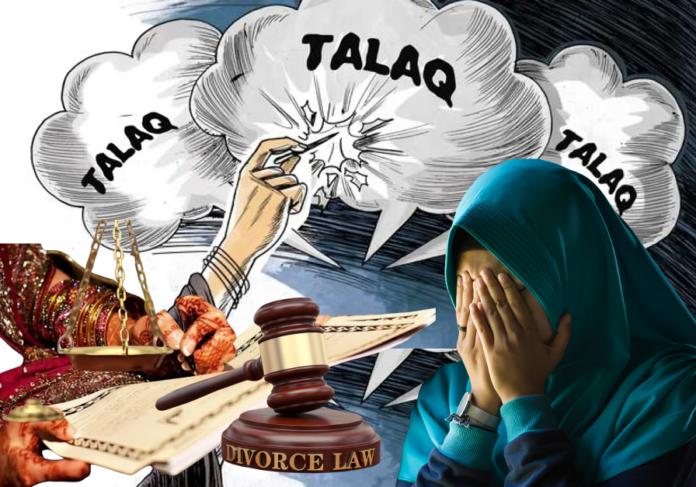The Council of Islamic Ideology (CII) has urged the government to make the practice of issuing “three divorces at one time” punishable by law. This recommendation aims to enhance the protection of marriage and promote responsible behavior in marital relationships.
A primary focus of the meeting was the significant legal and social implications of the practice of giving “three divorces at one time.”
Strong Stance Against “Three Divorces At One Time”
1. Leadership and Context:
The meeting was chaired by Dr. Muhammad Raghib Hussain Naeemi, a notable figure in Islamic jurisprudence. His leadership set the stage for a comprehensive discussion on critical family law matters in Pakistan.
2. Focus on Family Law:
The council addressed various issues affecting family law, highlighting its importance in ensuring justice and harmony within families. The discussions aimed at understanding the challenges faced in the current legal framework.
3. Three Divorces at One Time:
A primary focus of the meeting was the practice of giving “three divorces at one time” (triple talaq). This controversial practice allows a husband to divorce his wife instantly and irrevocably by pronouncing “talaq” three times in one sitting. The council considered the legal and social implications of this practice, which has been a topic of debate within Islamic communities and legal systems.
4. Sanctity of Marriage:
Members of the CII expressed their concerns that the practice of triple talaq undermines the sanctity of marriage. They argued that it devalues the marital bond, which is meant to be a serious and lasting commitment. By allowing such a swift termination of marriage, the emotional and social stability of families is jeopardized.
5. Call to Action:
The council urged lawmakers to take swift action to address this issue. They advocated for reforms in the family law framework to protect the rights of women and ensure that marriages are treated with the respect and gravity they deserve. The members emphasized the need for legislation that discourages arbitrary divorces and promotes mediation and reconciliation in family disputes.
6. Broader Implications:
The discussion around this practice reflects broader societal issues, including women’s rights, family stability, and the interpretation of Islamic law in contemporary society. The CII aims to align legal practices with both religious values and modern societal needs, advocating for solutions that respect cultural and religious beliefs while ensuring justice and equity for all parties involved.
Proposed Changes to the Dowry Act
The CII also took a strong stance on the Dowry Act, recommending that penalties for violations be increased from six months to one year. This decision reflects the council’s commitment to combatting dowry-related injustices, which often lead to exploitation and abuse during the marriage process.
Adjustments to Wedding Expenses and Dowry Limits
In addition to addressing legal penalties, the council approved an increase in permissible wedding expenses from Rs 2,500 to a value equivalent to 2 tolas of gold. Similarly, the dowry limit was set to match this increase. These changes aim to align wedding practices with ethical norms and reduce financial strain on families.
Draft Legislation on Divorce Practices
The CII has reiterated its recommendation to make the act of giving “three divorces at one time” punishable, stating that the draft legislation on this issue is ready to be sent to the government. The council believes that instituting legal consequences for such actions will encourage individuals to approach divorce more thoughtfully and responsibly.
In a notable decision, the CII rejected a private family law bill proposed by PTI’s Barrister Ali Zafar Advocate. This bill aimed to divide property acquired after marriage equally between spouses in the event of a divorce. The council deemed the proposal not maintainable under Shariah, asserting the necessity of adhering to Islamic principles in family law matters.
Health Initiatives and Community Engagement
In a bid to enhance public health awareness, the CII agreed to consider adding a column for thalassemia testing in marriage forms. However, there was no consensus on whether marriages should be prohibited based on positive test results. This initiative underscores the council’s commitment to addressing health concerns that could impact future generations.
The council also decided to hold a seminar to discuss the establishment of a human milk bank. This proposal reflects the CII’s dedication to promoting maternal and child health in Pakistan, acknowledging the importance of breastfeeding for infant development.
As the Council of Islamic Ideology continues to advocate for reforms in family law, the emphasis on making “three divorces at one time” punishable remains a significant focus. The council’s recommendations aim to foster a more just and responsible approach to marriage and divorce in Pakistan, ensuring that legal frameworks align with Islamic values.


